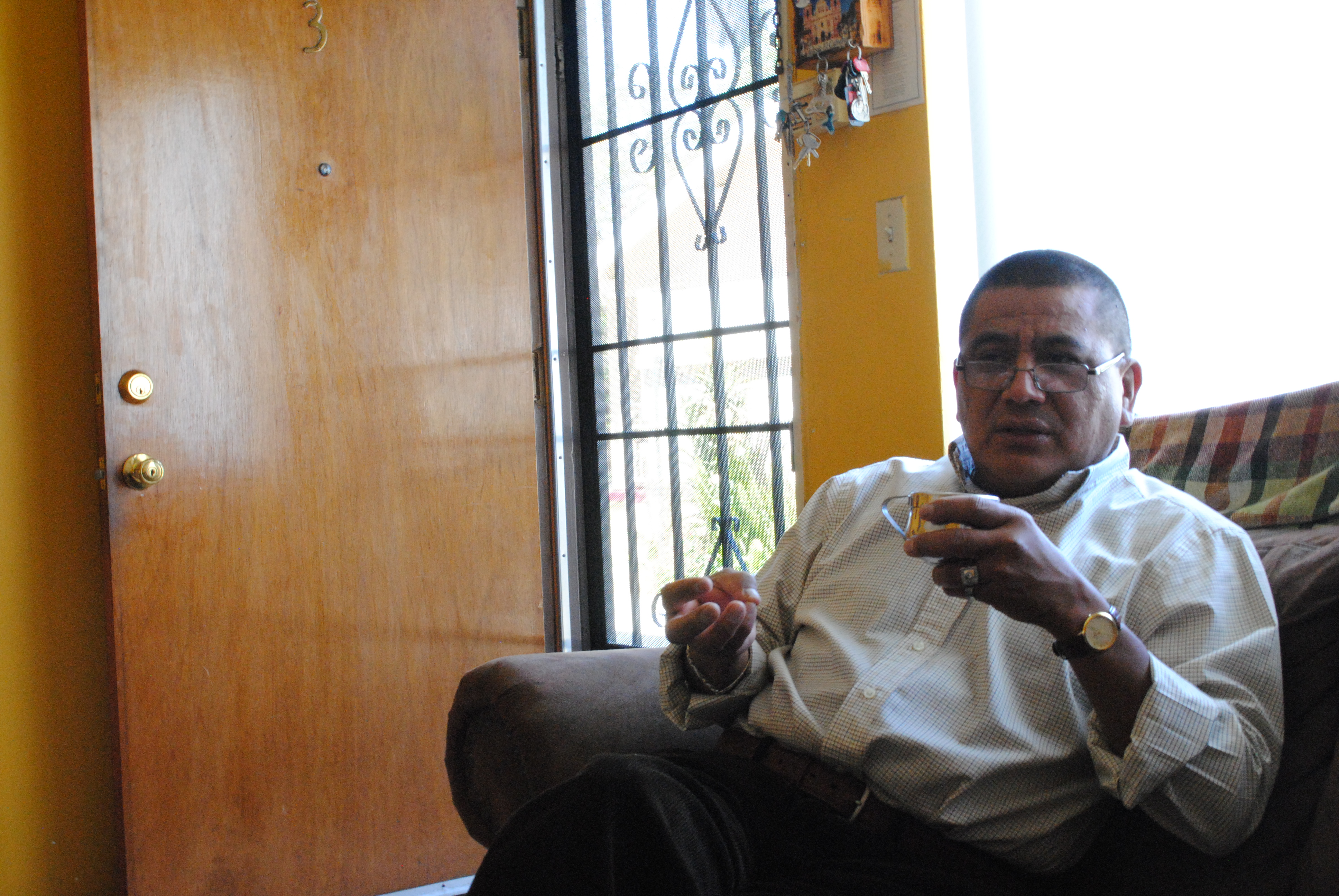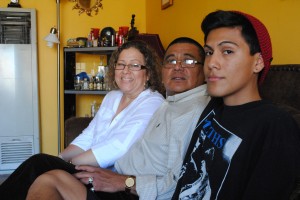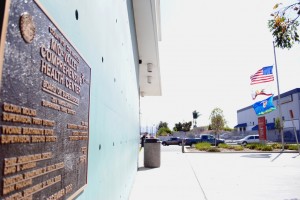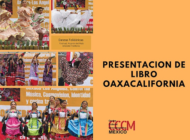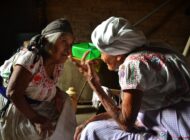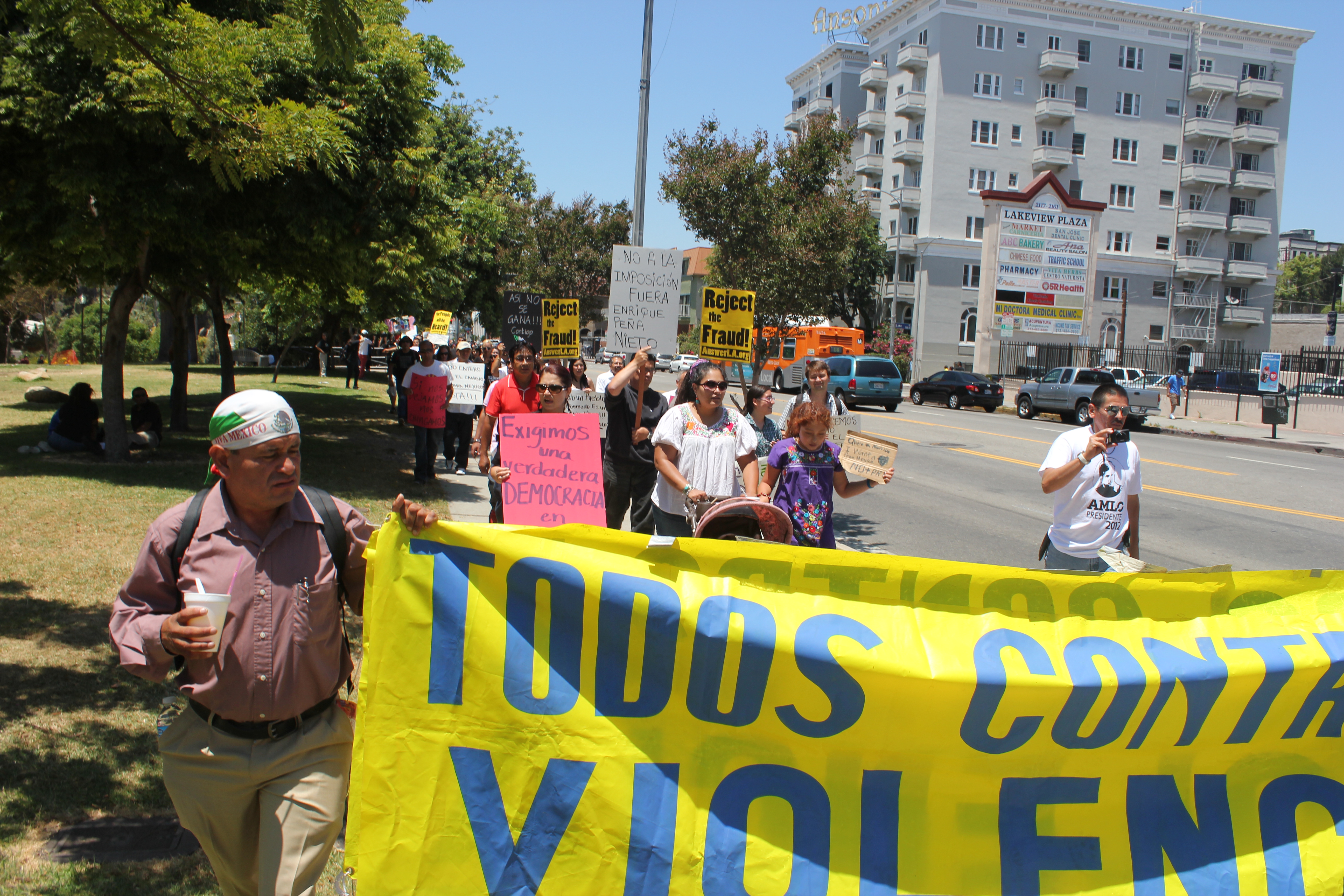One out three Latinos does not have health insurance, compared to one out 12 whites. With 15.3 million, Latinos represent the minority with the least health insurance.
JORGE NERI
EL NUEVO SOL
“If I haven’t shot myself is just because I don’t own a gun…because I feel hopeless. I knew that I couldn’t do
anything and as head of the household, I have to provide,” said Adonis Ortiz, 47, when asked about the medical condition of his wife.
Adonis lost his job and has been forced to look for government support to afford the medical treatment of his wife Jazmina Ortiz, 49, since she was detected with the possibility of having breast cancer.
After Adonis found a job the government decided to stop supporting the medical treatment of Jazmina because they thought he was making enough money to maintain his family and pay the medical treatment of his wife.
This is just one of the many stories of Latinos who are not able to afford medical insurance. The Affordable Care Act commonly known as Obama Care will affect the Latino community and impact all Americans’ wallets.
“Since I set foot on the United States, I am thankful for being accepted into this country,” said Adonis, who migrated from Nicaragua after serving the Nicaraguan army during their civil war. Although Adonis migrated alone from Nicaragua, Adonis and Jazmina already knew each other from their native land.
Adonis and Jazmina now rent an apartment in Los Angeles and have two sons Adonis Jr. Ortiz, 25, who is already married and Gerald Ortiz, 19, who is a Philosophy student at Cal State Northridge.
Jazmina is disabled and it’s difficult for her to keep a job. She said that she has had several jobs until she began to suffer of calcification of her bones and having trouble moving her arms. She is a stay home mom for now. “I stopped working because I began to get sick… I have back pain and my bones hurt,” said Jazmina.
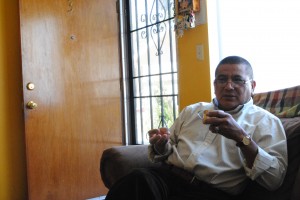
Adonis Ortiz is drinking some coffee during Sunday morning before going to enjoy his weekend with the rest of his family. El Nuevo Sol/Jorge Neri
“It’s hard to see my dad go through these difficult times, but I try to help my mom with the home chores,” said Gerald. “’I’m not talking about any luxury, I’m talking about health, which is necessary and it’s something that we need. The right to live should be our government’s main concern.”
In 2014 the Affordable Care Act will be fully active in the United States and it could change the problems that the Ortiz family is having in paying their medical bills. Thanks to the Affordable Care Act all resident will be able to have health care insurance.
Insurance companies will have to give money back to the insured if they are over spending money for administrative reasons, there will be support to have access for drugs, and there will also be some free medical services.
“The main purpose of the health care reform is to fix the problem that we currently have. We have an increase in health insurance and over 47 million people without having access to the health care system. This is a solution that improves the access, improve the quality and reduces cost,” said Joni Novosel, director of the Valley Care Community Consortium.
The 2010 U.S. Census shows over 49 million Americans without health insurance. Latinos are the biggest minority group without health care insurance with 15.3 million uninsured while African Americans are the second minority uninsured with 8.1 million uninsured.
According to the National Council of La Raza, one of three Latinos is uninsured, which is the lowest compared to the, one out of five for African-Americans and one out of 12 for whites.
“There is a big portion of Latinos that don’t have health insurance,” said Alina Salganicoff, vice-president and director of the Women Health Foundation of Kaiser Permanente. This reform will help have access through Medicaid. People that are working and are of low income will have access to health care with subsidize from the government, said Salganicoff.
Medicaid will expand their coverage to people and will not be able to reject anyone regardless of their medical background, said Salganicoff.
The programs Medicaid and CHIP (Children Health Insurance Program) will be transformed on 2014. Medicaid, which is called Medi-Cal in California, is a federal program designed for people with low income, pregnant women and disabled individuals according to HealthCare.gov
CHIP is a program that gives health coverage to children of low-income families, but these families make too much to qualify for Medicaid. However, through this program they can give health care coverage to their children.
“The Affordable Care Act is going to change Medicaid and CHIP,” said Salganicoff. Before, if you have low income, it wouldn’t be enough, you would also have to be a parent of an 18 year-old or younger minor, a pregnant woman, or have severe medical problems. If you aren’t in one if these categories, you don’t qualify for Medicaid regardless of your income, said Salganicoff.
The Affordable Care Act requires that all U.S. residents have health care insurance. It can be either through their job, a private policy or refuse to pay for insurance and pay a tax to refuse the coverage.
Most U.S. businesses have 50 workers or less and if the company has 10 workers, they won’t be able to give health care insurance to their workers. This is why the government will subsidize these expenses for all small businesses, said Novosel.
“From all U.S. population, 80 percent of them have health insurance through their employer for them everything will be the same, but now people that are below the poverty level will have access to health insurance…no one will spent more than eight percent for their health insurance,” said Novosel.
The group that won’t benefit from the Affordable Care Act is the undocumented immigrant community. Regardless of the large undocumented Latino community, this reform will not benefit them in any way.
Latinos have to understand that there are people in their community that won’t be able to have access to health coverage in their community, and that is the undocumented community said Salganicoff.
Jazmina still has medical problems and she qualified for one year of government support, which means that from 2013 to 2014, until the Affordable Care Act kicks in, the Ortiz family will have to do what they can to keep providing the medical support for Jazmina.
Tags: 2012 2014 Alina Salganicoff. Joni Novosel California CSUN health Healthcare Reform Jorge Neri Kaiser Permanente Los Angeles Medicaid NCLR Obama Care Ortiz Family







